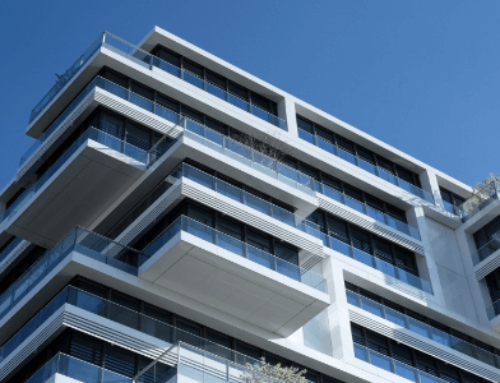So you’re at a crossroads. The time has come for a change. Perhaps you need more room to accommodate a new member of the family (it’s a sausage dog, isn’t it?), or maybe you’re in need of some new scenery… away from the neighbour who mows the lawn every Sunday in his budgie smugglers. Thanks a bunch, Jeff.
Regardless of why you want to move, you now have a choice to make – should you sell your home or rent it out? There are plenty of good reasons to do both but it’s all going to depend upon your specific situation.
Let’s go through some pros and cons so you can get a better idea about what might be the right course of action for you.
PROS OF SELLING
When it’s done, it’s done
One of the biggest pros of selling your home over renting it out is that once it’s been sold, you walk away and never have to look back. You won’t be tethered to the property or need to maintain responsibility for its upkeep or the management of future tenants. Of course having an investment property comes with its benefits, but having to oversee two separate homes is no walk in the park. This can become 10x more difficult the further away you plan to move.
You’ll have your next down payment sorted
This is an especially important point to consider if you’re planning on making a significant upgrade with your next property by either moving into a nicer area or finding a home that’s considerably larger. Selling your home is will mean that you have the money you need to set you up for the next one. Basically, you’ll be in a far better financial situation that will likely lead to more options than if you’d taken the investment route.
You can avoid a market downturn
If you stay up to date with all the property market coverage and think you know how it’s likely to play out then this might be your ticket out of a real estate bust. Assuming the prognosis is not looking good, then selling is going to be your best option by far. If the property market does indeed begin to take a turn for the worse then you’ll only be losing out on money that you could’ve put towards another home. So if this situation looks like it might apply, then you’re best bet will likely be to take the money and run.
CONS OF SELLING
Prepare to renovate
There’s a very good chance that you’re going to need to make some updates before you put your home on the market. Since the competition is so fierce in the current property climate, refurbishments are generally going to be expected by prospective buyers who won’t be keen on buying up a home that comes with a backlog of repairs. If you don’t have the funds to renovate or you can’t really be bothered, then you’ll be looking at a reduction in the optimal selling price you could achieve.
The chance of a failed sale
Most people tend to underestimate the difficulty of selling their own home. The reality is a bit more harsh than you may have imagined. Houses for sale aren’t just selling like hot cakes, and if you’re not careful the entire sales process may even end up a complete failure. There are ways to avoid this so keep in mind:
- You will need a highly competent realtor
- If you’re not willing to renovate or make repairs, you may not find a willing buyer
- You need to be realistic about your sales goals
PROS OF RENTING
Making money
Chances are, if you’re considering the option of renting out your home as an investment property, it’s because you know that you’ll be able to make money by doing so. Being a landlord is one of the most commonly cited ways of building wealth, and one that many Australians aspire to. If it looks as though the value of your home is only going to appreciate over time (which it almost always will), then you have yourself a seriously promising asset. Being a landlord isn’t for everyone, but if you’ve got the dedication then you stand to make a desirable profit.
Tax benefits
Who doesn’t love a good tax deduction? When it comes to renting out an investment property you automatically hit the taxation jackpot. Here’s just a short list of expenses you can claim:
- Council rates
- Interest on mortgage repayments
- Repairs costs
- Travel costs to and from the property
- Advertising for tenants
- Real estate management fees
Rent is ever-increasing
Due to inflation, property market projections, and population growth, rent is generally expected to increase on average around 3% each year. If you secured a fixed rate home loan then your mortgage is going to stay the same, and the longer you rent out your property, the more cash flow you’re going to see. This is one of the many pros of having an investment property, and if handled well, you’ll find yourself with a decent amount of passive income in your pocket as the years go by.
CONS OF RENTING
Being a landlord
Do you like responsibility? If you answered “no”, then becoming a landlord probably isn’t for you. Managing an investment property isn’t as simple as just watching money pile up in your bank account. It’s a big responsibility, and if not handled well, could lead to more trouble than it’s worth. So what are the main concerns?
- Terrible tenants: this can lead to late rent, property damage, or unapproved alterations
- Urgent and unexpected repairs: think late-night plumbing emergency
- Excess insurance fees
- Unable to find a tenant in time? Have fun paying two mortgages at once
If none of these problems bother you, then rest assured, being a landlord can be very financially rewarding. Not simple, but rewarding. You also have the option of taking on a property manager to deal with all these issues for you – but just be aware that you’ll be losing out on any additional income because of it.
Home loan approval can be difficult
This generally depends on the restrictions of a particular money lender and often applies more so to individuals who don’t have a large income. Since you’re at the beginning of your investment property journey and haven’t had the time to build up a portfolio of rental income from your tenants, it can sometimes be hard to secure a new mortgage. This can often be a problem if your chosen bank won’t take projected rental payments into consideration and will basically just end up making your life harder than it needs to be.
The market could crash
This isn’t one that investors like to think about too much because if the housing bubble does decide to burst, there’s no coming back from it. Small fluctuations over time are inevitable but a huge bust is going to take a looooong time to come back from. So yes, investing is a gamble and it does come with its risks, but more often than not the rewards far outweigh these.
Whatever you decide to do, just ensure that it’s going to be right for your situation and life goals. Who knows what could happen, you might end up becoming a property investment tycoon.







Leave A Comment